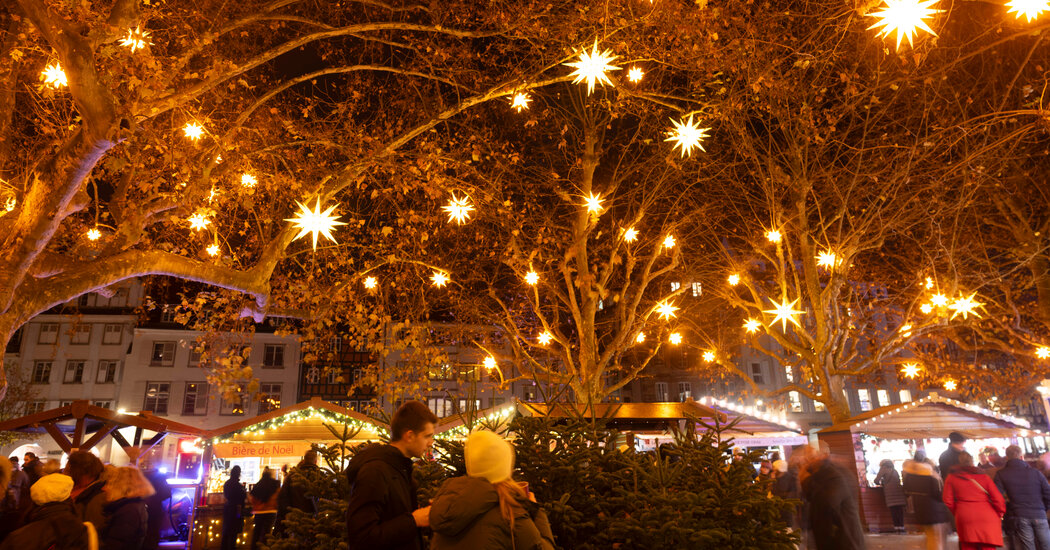In Strasbourg, France, throughout the holiday season, Santa-capped teddy bears festoon a restaurant’s facade. Stuffed polar bears adorn another. In a Yuletide arms race, buildings are affixed with giant, gift-wrapped packages, glittering white deer and oversize gingerbread men. Turning the central medieval quarter into a Christmas maze, curtains of lights glow above cobblestone lanes lined with food and gift stalls. And in the central Place Kléber, lights on a nearly 100-foot-tall Christmas tree flash and glow, synchronized to carols.
Across Europe, Christmas markets pop up like fairy-dusted street fairs, with temporary chalet-style shops selling everything from handmade ceramics to warmed wine and abundant food. Visitors shuffle among the merry warrens, holding their cellphone cameras high.
“The closer you get to Christmas, Strasbourg really becomes like Times Square,” said Jonathan Frank, a former Broadway videographer who retired to the city two years ago.
A popular way to visit the markets in France, Germany, Switzerland and beyond is to take river cruises on the Rhine, Danube or Main, spending roughly $2,000 to $4,000 a week. Could I replicate such a holiday pilgrimage for less by using trains to get around?
Along the Rhine, through the Alsace region of northeastern France, trains run continuously between Strasbourg in the north and Basel, Switzerland, in the south, allowing access to market cities and towns en route. To test my budget and my tolerance for seasonal cheer, I spent about $300 on trains, splitting six nights between lively Strasbourg and popular Colmar at Airbnbs that averaged $180 a night. In exchange for convenience, I hoped to gain priceless control over when and where to wander.
The capital of Christmas
“If you stay a week in Strasbourg, you will gain three kilos,” said Pierre Feisthauer, a tour guide who runs Discover Strasbourg, during a two-hour market tour that I booked through Airbnb Experiences (about $26).
The tour on my first evening offered a practical lay of the land in the old town on an island in the River Ill, a Rhine tributary where, by Mr. Feisthauer’s count, more than a dozen markets cluster in plazas and pedestrian lanes, drawing two to three million visitors throughout the season.
He also demystified the food, led by tarte flambée — a thin Alsatian pizza topped with cream sauce, chunks of smoky slab bacon and onions — and followed by sausages, spaetzle, potato pancakes and soft pretzels, served salted,…
Click Here to Read the Full Original Article at NYT > Travel…
